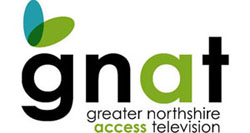Attorney General Clark Sues Monsanto for PCB Contamination
The lawsuit filed by the State for school and environmental contamination is first in the nation
BURLINGTON, Vt. – Attorney General Charity Clark has filed a lawsuit against Monsanto to protect and restore Vermont’s natural resources and schools affected by PCB contamination. The lawsuit, which seeks recovery for PCB contamination in schools on a statewide basis, is the first of its kind in the nation. The lawsuit alleges that, for decades, Monsanto knew its commercial PCB formulations were highly toxic and would inevitably produce the contamination and human health risks that have occurred.
“Monsanto manufactured, marketed, sold, and distributed PCBs while knowing that its products would cause significant, long-term damage in Vermont,” said Attorney General Clark. “This lawsuit seeks to hold Monsanto accountable for knowingly misleading the public about the harmful impacts of its products. The cost of cleaning up after Monsanto’s deception will be considerable and should be borne by the multibillion-dollar company that profited from the misconduct, not by Vermont taxpayers.”
The Attorney General’s complaint alleges that PCBs – polychlorinated biphenyls – are toxic and dangerous chemical compounds that were manufactured, marketed, sold, and distributed by Monsanto in the United States from approximately 1929 to 1977. During that period, Monsanto was responsible for the manufacture of 99 percent or more of all PCBs used or sold within the United States. When it manufactured and sold PCBs, Monsanto knew with substantial certainty that PCBs were highly toxic, harmful to human health and the environment, and that they would leach and escape into the environment and indoor air. Nonetheless, Monsanto sold its PCB products for use in paints, caulks, inks, dyes, paper products, lubricants, sealants, plasticizers, coolants, hydraulic fluids, fireproofing, and industrial electrical equipment such as capacitors and transformers, among other applications.
Although PCBs were banned in the late 1970s, they are highly persistent and continue to circulate in the State’s waters and other natural resources, especially Lake Champlain. In 2021, the Vermont Legislature passed Act 74 requiring all schools built or renovated before 1980 to test their indoor air for PCBs. Testing in schools began in spring 2022 and it is expected that the testing will be completed by July 2025 by the Agency of Natural Resources’ Department of Environmental Conservation.
“In our role as stewards of Vermont’s natural environment, we are committed to the remediation of toxic and dangerous PCBs distributed by Monsanto in Vermont, and to the protection of our natural resources,” said Department of Environmental Conservation Commissioner John Beling. “Through the work of the Attorney General’s Office, we hope to secure the necessary resources for comprehensive cleanup and prevention efforts that will benefit both present and future generations as well as compensation for damages to Vermont’s precious natural resources.”
A copy of the complaint is available here.



